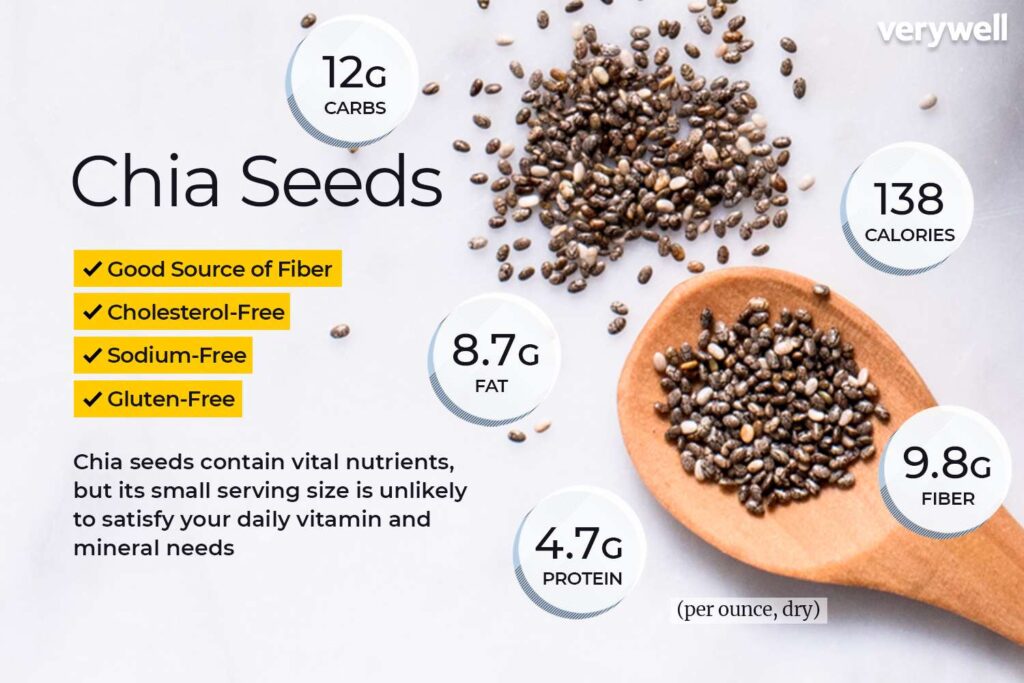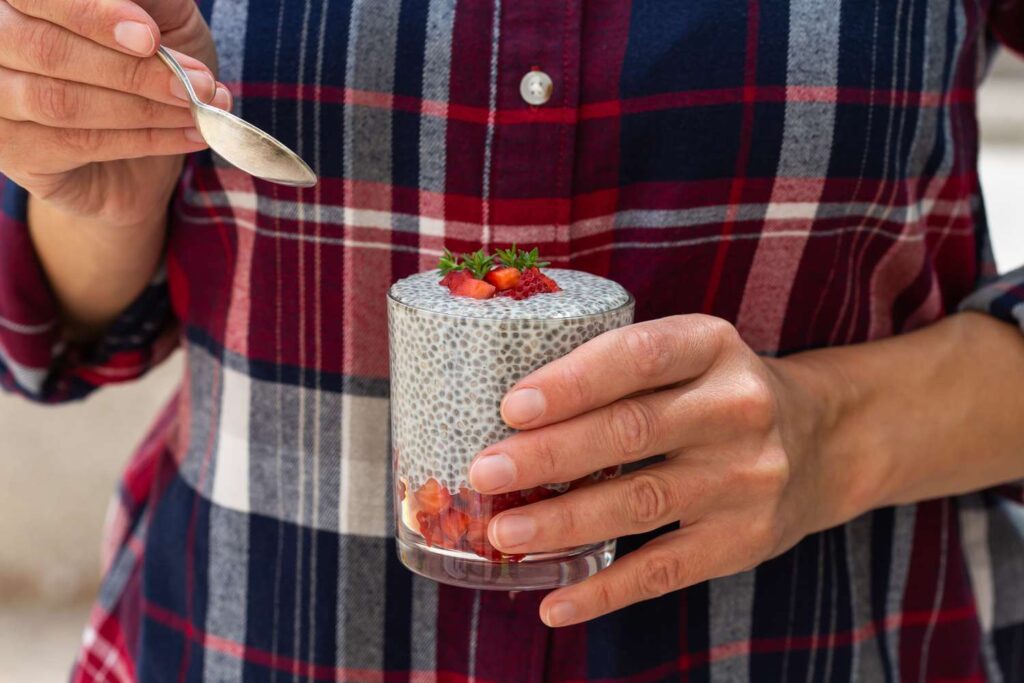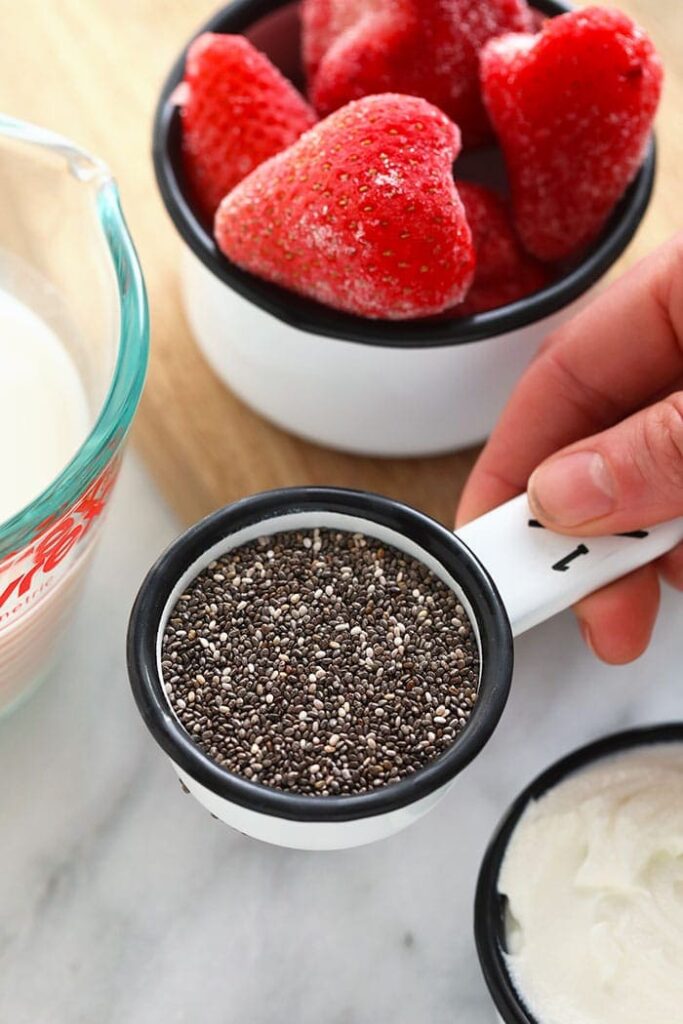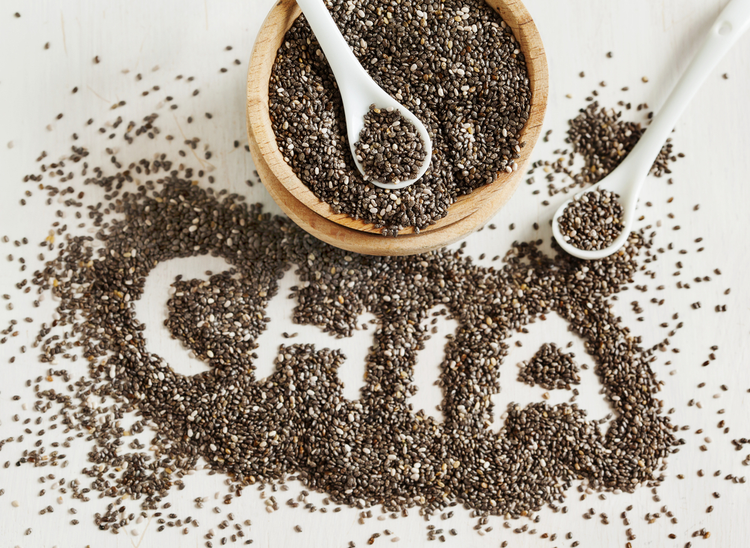Chia seeds have earned a reputation as a “superfood,” celebrated for their dense nutritional profile and versatility. But one question often surprises both health enthusiasts and newcomers alike: How many calories are in 1/4 cup of chia seeds? The answer reveals a fascinating paradox—these tiny seeds pack a caloric punch while delivering an extraordinary array of nutrients. In this deep dive, we’ll explore why chia seeds’ calorie count is both surprising and justified, unpack their health benefits, and provide practical tips for incorporating them into your diet.

The Caloric Profile of 1/4 Cup Chia Seeds
A 1/4 cup (30 grams) of chia seeds contains approximately 150–180 calories 412. This range accounts for slight variations between brands and seed sizes. To put this into perspective:
- 1/4 cup of chia seeds has nearly the same calories as a medium banana (105–120 calories) but offers significantly more protein, fiber, and healthy fats.
- It’s calorie-dense compared to other seeds like flaxseeds (150 calories per 1/4 cup) but provides more calcium and omega-3s 89.
Macronutrient Breakdown
The calorie distribution in chia seeds is nutrient-forward:
- Fat: 9–11 grams (primarily heart-healthy omega-3s like alpha-linolenic acid [ALA]) 39.
- Carbohydrates: 12–13 grams, with 10 grams coming from fiber (36% of the daily value) 47.
- Protein: 4–5 grams, including all nine essential amino acids 611.
This balance makes chia seeds a rare plant-based source of complete protein and a powerhouse for sustained energy.

Why the Calories Are Worth It: Nutritional Benefits
1. Fiber: The Digestive and Metabolic Game-Changer
Chia seeds are 35% fiber by weight, with a 1/4 cup providing nearly 40% of the daily recommended intake. Their soluble fiber forms a gel-like substance in the gut, slowing digestion, stabilizing blood sugar, and promoting satiety 39. Studies link high fiber intake to reduced risks of heart disease, diabetes, and colorectal cancer 811.
2. Omega-3 Fatty Acids: Beyond Fish
With 5 grams of ALA per ounce, chia seeds are one of the richest plant sources of omega-3s. These fats reduce inflammation, support brain health, and lower triglycerides and blood pressure 69. While ALA must convert to EPA/DHA (found in fish), chia seeds remain a critical option for vegans and vegetarians 9.
3. Bone-Strengthening Minerals
A 1/4 cup delivers:
- Calcium: 14–18% DV (more than dairy per gram) 811.
- Magnesium: 23% DV (supports muscle and nerve function) 7.
- Phosphorus: 20% DV (vital for bone mineralization) 9.
4. Antioxidants: Combatting Free Radicals
Chia seeds contain quercetin, kaempferol, and chlorogenic acid—antioxidants that neutralize free radicals, reducing oxidative stress linked to cancer, aging, and chronic diseases 611.
5. Weight Management and Blood Sugar Control
The gel-forming fiber slows carbohydrate absorption, curbing blood sugar spikes. Combined with protein, this promotes fullness, reducing overeating. Research shows chia-enriched meals lower postprandial glucose by up to 39% 611.

Comparing Chia Seeds to Other Foods
| Food (1/4 cup) | Calories | Protein | Fiber | Key Nutrients |
|---|---|---|---|---|
| Chia seeds | 150–180 | 5g | 10g | Omega-3s, calcium, magnesium |
| Flaxseeds | 150 | 5g | 8g | Omega-3s, lignans |
| Oats (dry) | 150 | 5g | 4g | Beta-glucan, iron |
| Almonds | 210 | 8g | 4g | Vitamin E, monounsaturated fats |
While chia seeds are calorie-dense, their nutrient density justifies their place in a balanced diet.
Potential Downsides and Considerations
1. Overconsumption and Digestive Issues
Eating too much fiber too quickly can cause bloating or constipation. Start with 1 tablespoon daily and gradually increase to 1/4 cup, paired with ample water 11.
2. Blood Thinning and Medication Interactions
Chia seeds’ omega-3s may enhance blood-thinning medications. Those on anticoagulants or blood pressure drugs should consult a doctor 11.
3. Choking Risk
Dry chia seeds expand up to 12x their weight in liquid. Always soak them before consumption to avoid esophageal blockage 11.

How to Use 1/4 Cup Chia Seeds Daily
1. Chia Pudding
Mix 1/4 cup chia seeds with 1 cup plant-based milk, sweetener, and vanilla. Refrigerate overnight for a breakfast packed with 9g fiber and 10g protein 8.
2. Egg Replacement
Combine 1 tbsp chia seeds + 3 tbsp water = 1 egg. Perfect for vegan baking 9.
3. Smoothie Booster
Add 1–2 tbsp to smoothies for thickness and nutrients without altering flavor 5.
4. Salad or Yogurt Topping
Sprinkle soaked chia seeds over meals for a crunchy texture and omega-3 boost 3.
Conclusion: Quality Over Quantity
While the calorie count of 1/4 cup chia seeds may seem high, their unparalleled nutrient profile makes them a worthwhile addition to any diet. From stabilizing blood sugar to strengthening bones, these seeds exemplify how calorie density can align with holistic health. By mindfully incorporating them into meals—soaked, ground, or sprinkled—you can harness their benefits without overindulging.
In the words of nutrition researchers, chia seeds are “nutritional heavyweights” that prove good things truly come in small packages 39.